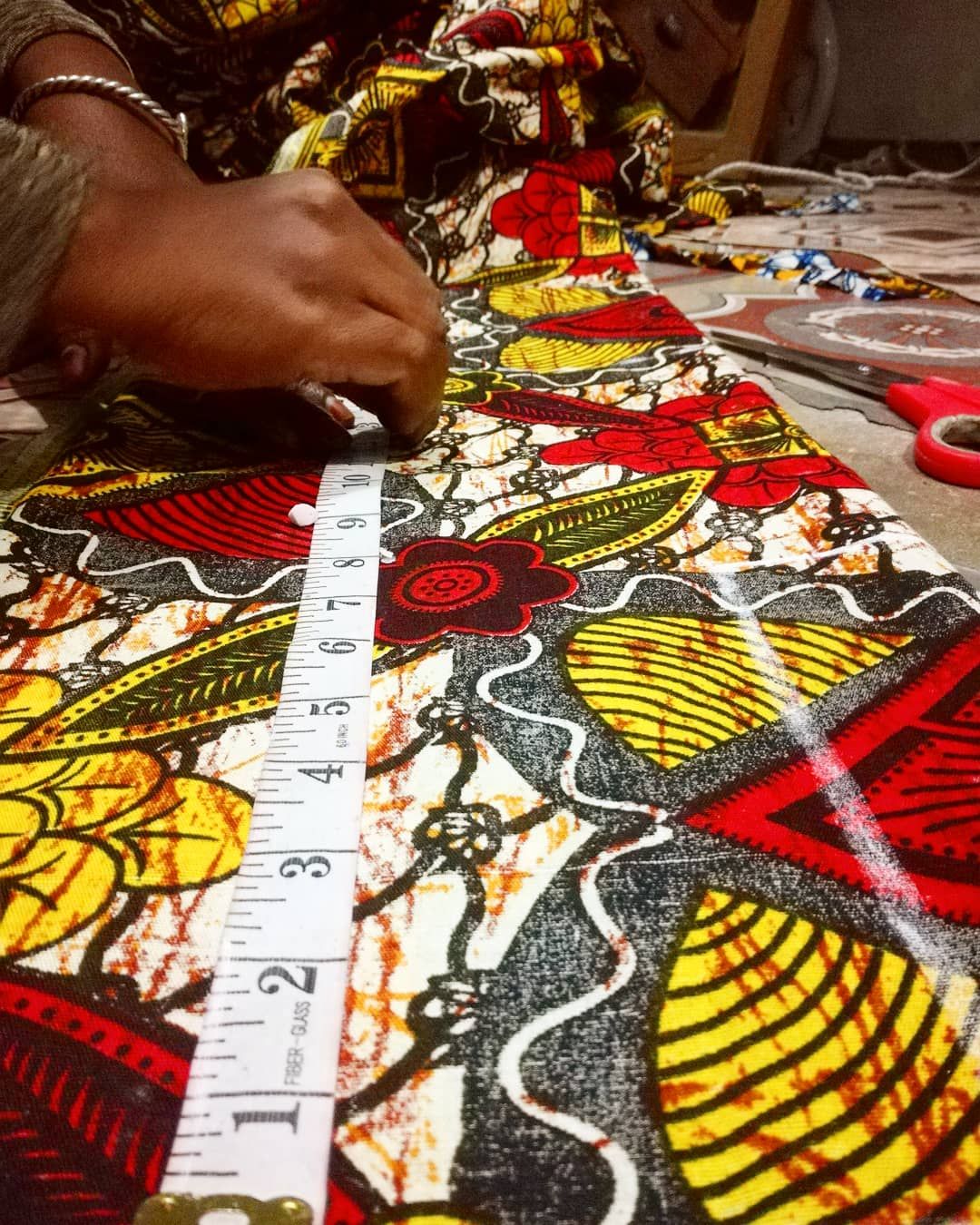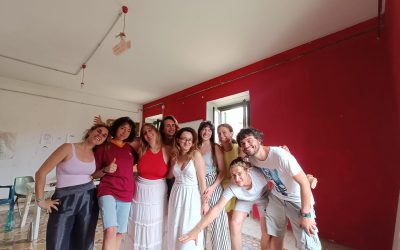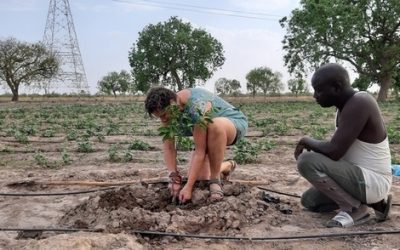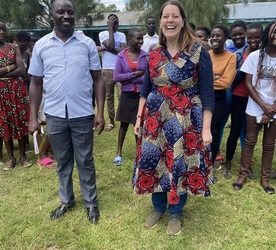(Re)Discovering the meaning of “feminism” in Tanzania
The project took place in:
Tanzania
Long term volunteering
Written by Sara
My name is Sara and I have always had a weird relationship with the word feminism. In the beginning, when I was a kid and came to hear the word for the first time I found it deeply attractive. It sounded like something mystical as if people were speaking of a secret cult of some sort. A group of women in some undefined ancient times meeting in underground catacombs barely illuminated by the feeble light of wooden torches, all standing in a circle whispering in an unknown language and drinking wine from the same cup. It was the phase of my life when I wanted to be a female Indiana Jones bringing antiquity back to light.
Then came the period of my life when I mistreated the word feminism, it was that phase of life where “boys suck” and being feminist meant imagining a world where self-reproduction was possible and girls wouldn’t have to deal with the “others” playing in the courtyard.
Years after that, probably around my late teens, came another phase, a darker one, abnegation. It was that moment in my life when I started building my own conscience, my own opinions about the world surrounding me. I started joining political discussions, trying to understand what was going on around me, what big words, ideas, and -isms meant. And that is when I started to dislike the term feminism. Not because I didn’t believe a girl could dream about becoming an astronaut or a boy a flight assistant, but simply because I couldn’t fully understand what the word meant exactly. I had so many contrasting opinions surrounding me. I had made some research about the feminist movement and suffragettes but feminists of my time seemed nothing like that. I started seeing them as a group of angry women wandering around with no bra wanting to mass murder any living being without a vagina. I considered them guilty, women like that were the reasons why feminism was misunderstood by everybody. They were the ones who didn’t convey the message properly. I saw feminists as a closed-off group, women who would tell a man “you are not a woman, you wouldn’t understand” and refuse to explain their difficulties and points of view to those who were actually interested in the topic or considered themselves feminists as well. My slogan at the time was “I’m not a feminist, I simply believe in equal rights”. Well, dear Sara, that’s all feminism is about, every single one of us expresses this ground idea as they think is better.
After years of conversing, reading, documenting myself, I came to understand that I am a feminist and I am not afraid of saying it, I don’t care about the fact that people may see me as a bra-less lunatic wandering around with a knife, I don’t care about people thinking I don’t like to discuss my beliefs with men, I don’t care about people thinking I do it because “it has become more of a fashion statement”. I do believe in equal rights, therefore I am.
After I finally recognized the term feminist as my own came the difficult part. What is feminism to me? My European self is a very confident feminist. I know that feminism means teaching our kids that we are all the same, I know that gender differences sink into our brains from age 3 to 6 and are very difficult to eradicate once they are there. I know that our environment is completely filled with gender stereotypes and we are constantly subject to them but at the same time I know that it is impossible for us to live outside any kind of environment. I know that when a woman wants to reach a certain goal or position, she will probably have to work harder than any man running for the same. I know that statistically, women that wear makeup at work have a higher chance of getting a promotion or closing a deal than women that don’t. I know that a woman doesn’t feel safe walking the streets at night.
What I didn’t know is that not many women in Zanzibar work, they just stay at home, giving birth, taking care of children, and preparing food. What I didn’t know is that a man who cooks in Tanzania is considered as weak, even if nourishing oneself should come quite instinctively. What I didn’t know is that there are women in Zanzibar who are changing their world. What I know now, after living with them for some time is that they are absolutely incredible.
I have always given for granted that both men and women work, maybe with a salary gap, but they both work. Work, for a woman in Zanzibar, like any other woman from anywhere around the world, is extremely powerful because when a woman works and starts gaining her own money she can find her own independence. Economical independence means freedom, freedom to buy what we want, what we like, what we need without waiting for someone to give it to us. It is something I had never considered, I have always liked traveling and when I was 16 I started working during weekends and holidays, and I still remember that trip to Paris I paid with my own money: it made me feel strong, it made me feel free. But what if I was born in a country where I simply wouldn’t have had the opportunity of serving ice cream during weekends? Would I have fought to change my situation? Women in Zanzibar are.
Something else I learned is that having an occupation also comes with meaningful changes in daily life and social structure. If both a man and a woman are busy during the day, families will evolve in a different way, the perspective on family planning will change completely and a woman will explore all of the roles that she can play in society. A word I have been hearing very frequently during my stay in Zanzibar is “empowerment”. The project I joined was called “women’s empowerment” but I came to understand that it is a term very often used, by anyone who is trying to change the reality in which they live. Zanzibaris are trying to empower themselves through different means and projects. Well, women are part of the solution. Women joining the labor force automatically means double the contribution to the economical and social growth of a country.
Sewing (sew women initiative group) also known as “my mums”, as I call them by now, is a group of five women who decided to go even further. After working in the sewing sector for some years they decided to start their own business in 2016. They found a building suitable for a sewing atelier and shop and built their group little by little, contributing with their own savings.
My contribution to their project looks very small compared to what they have achieved in the past years: I help them with welcoming customers, explaining a little bit of the project to anyone who is interested in listening, I share my point of view on merchandising and product exhibition and together we try to find new inspiration and designs for their products. I am a sales assistant working for a group of businesswomen. Before joining the project I didn’t know what to expect but what I have understood by now is that I didn’t come to teach these women how to be feminists, it’s actually them who have taught me how to see the world through brand new eyes.
So let me tell you about the group, and the many faces and shades it is composed of. Some of them are married, some of them are not, most of them are Muslim, one of them is not, one of them is the Teacher, the others are excellent students, one of them is single, one of them is married to her sewing machine, one of them has four kids and is currently pregnant, one of them is very quiet, one of them laughs a lot but there is one thing they have in common: it is a spark. If you are very careful you can see it, right there, at the bottom of their eyes. You see it light up when they find a model they like and want to sew when they discover a new print and want to create something with it immediately when a customer enters the shop with a challenging request. It is curiosity, it is creativity, it is passion. The passion they put in every single movement they make, their hands running on meters and meters of fabric spread all over the floor, the constant buzzing of their sewing machines, the repetitive sound of scissors coming down as guillotines and sometimes taking bits of the carpet away with them, that laughter and the joy that becomes uncontrollable when they’re all in the same room – this is why I am a feminist.
You can still join!
Want to have your own volunteer experience for peace?
Read more Voices of Volunteers





